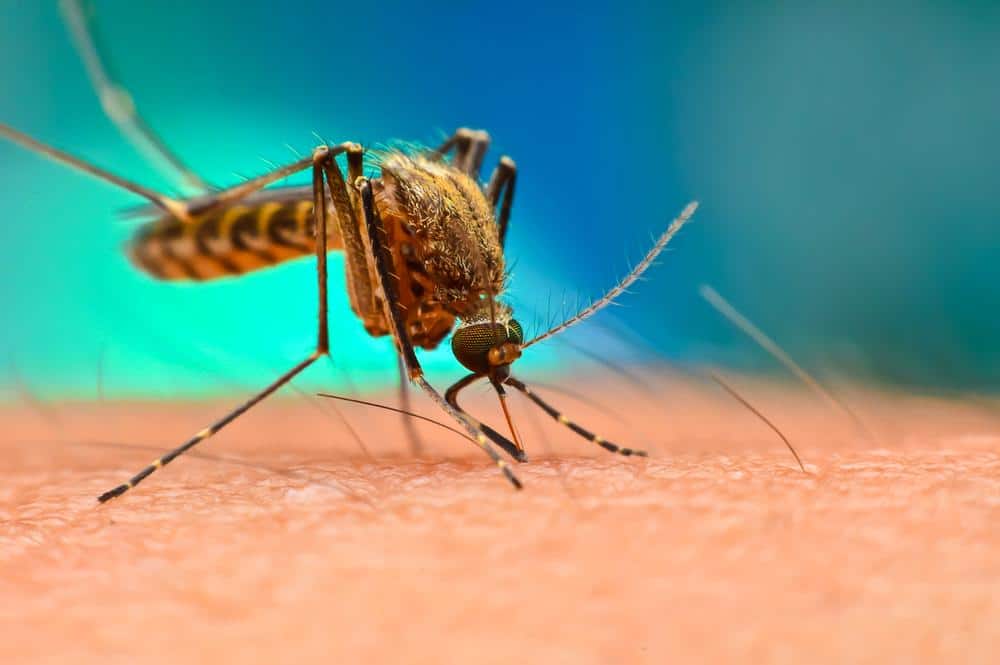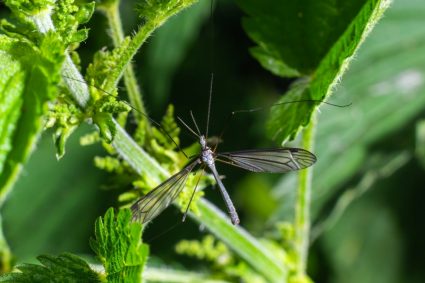
When the sun sets and the evening rolls in, there’s nothing more annoying than the high-pitched buzz of mosquitoes. While bug sprays are a go-to solution for many, not everyone is comfortable with the idea of applying chemicals directly to their skin. So, what repels mosquitoes besides bug spray? Read on to discover a range of alternative solutions to keep these pesky insects at bay.
Mosquitoes can be repelled naturally by using essential oils such as lemon eucalyptus, lavender, cinnamon, thyme, and Greek catmint oil. Planting herbs and plants like citronella grass, lavender, marigolds, basil, mint, and rosemary in your garden can also help. Insect-repellent clothing is another effective alternative. Moreover, lifestyle changes like covering up, avoiding peak mosquito hours, eliminating standing water, and using fans can also keep mosquitoes at bay.
Natural Alternatives
Several natural alternatives can help repel mosquitoes effectively. These options are generally safer for the environment and are less likely to cause skin irritation compared to chemical bug sprays.
Essential Oils
Many essential oils are known for their mosquito-repelling properties. These include:
- Lemon eucalyptus oil: Approved by the CDC, it’s one of the most effective natural mosquito repellents.
- Lavender: Its pleasant scent is known to repel mosquitoes.
- Cinnamon oil: A lesser-known but effective natural repellent.
- Thyme oil: Studies have found it to be particularly useful against the Anopheles species, which carries malaria.
- Greek catmint oil: Recent research suggests it’s more effective than DEET.
Plants and Herbs
Several plants and herbs can be planted in your garden or placed around your outdoor living spaces to naturally repel mosquitoes. These include:
- Citronella grass: This plant is the main ingredient in many natural mosquito repellents.
- Lavender: Mosquitoes dislike the scent of this plant.
- Marigolds: These flowers contain Pyrethrum, a compound used in many insect repellents.
- Basil: It’s strong scent repels mosquitoes.
- Mint: All types of mint, including peppermint and spearmint, can repel mosquitoes.
- Rosemary: When burned, the aromatic smoke from this plant can keep mosquitoes away.
Remember that while these plants and oils can help reduce the chances of mosquito bites, they may not provide complete protection. It is essential to use mosquito repellents, especially in areas where mosquitoes carry diseases.
Insect-Repellent Clothing
Insect-repellent clothing is another effective alternative to bug spray. These clothes are treated with permethrin, an insecticide that repels and kills mosquitoes. They can provide long-lasting protection and are an excellent option for those who spend a lot of time outdoors.
Lifestyle Changes
Certain lifestyle changes can also help repel mosquitoes:
- Cover up: Wear long-sleeved shirts, long pants, and socks to cover exposed skin.
- Avoid peak hours: Mosquitoes are most active during dawn and dusk.
- Eliminate standing water: Mosquitoes breed in standing water, so regularly drain and clean birdbaths, pet dishes, and other containers in your yard.
- Use fans: Mosquitoes are weak fliers, so using fans can help keep them away.
Conclusion
While bug sprays are effective, they’re not the only solution to keep mosquitoes at bay. From essential oils and plants to insect-repellent clothing and lifestyle changes, there are several natural and safe alternatives available. However, remember that the effectiveness of these methods can vary, and in areas with disease-carrying mosquitoes, it’s recommended to use repellents containing DEET or picaridin for better protection. Stay safe and enjoy your time outdoors without the annoyance of mosquito bites!
Frequently Asked Questions
Can I use these essential oils directly on my skin to repel mosquitoes?
Essential oils should not be applied directly to the skin as they can cause irritation. Instead, dilute them with a carrier oil like coconut or jojoba oil before applying. You can also add a few drops to a spray bottle with water and spritz it on your clothes or in your surroundings.
How often should I apply essential oils for effective mosquito repelling?
Essential oils evaporate quickly, so you may need to reapply every 1-2 hours for continued protection against mosquitoes.
Is insect-repellent clothing safe for children and pregnant women?
Yes, insect-repellent clothing is generally safe for everyone, including children and pregnant women. The permethrin used in these clothes is bound tightly to the fabric fibers and is not readily absorbed through the skin.
How long does the permethrin treatment last on insect-repellent clothing?
Permethrin treatment on clothing can last for several washes, typically around 70 washes for factory-treated clothes. However, effectiveness may decrease with wear and tear. Always follow the care instructions provided by the manufacturer to maintain the repellency of the clothing.
Do fans really repel mosquitoes?
Yes, fans can help repel mosquitoes. Mosquitoes are weak fliers and can be blown away by the wind produced by fans. Additionally, the breeze disperses the carbon dioxide we exhale, which mosquitoes use to locate us.
Can I use a combination of these methods for better protection?
Absolutely! Combining these methods can help increase your level of protection against mosquitoes. For instance, you can plant mosquito-repelling plants in your garden, use essential oils in your home, and wear insect-repellent clothing when outdoors.











